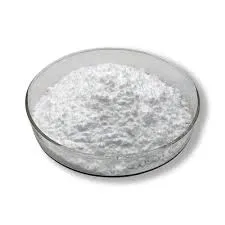
авг . 01, 2024 00:16 Back to list
Current Market Trends and Price Analysis of Redispersible Polymer Powder in 2023
Understanding the Pricing Dynamics of Redispersible Polymer Powder
Redispersible polymer powder (RDP) is a key material widely used across various industries, especially in construction, coatings, and adhesives. Its primary function is to enhance properties such as adhesion, flexibility, and water resistance when mixed with other materials. As the demand for high-performance construction materials continues to rise globally, understanding the factors influencing the price of RDP is essential for both manufacturers and consumers.
Factors Influencing Redispersible Polymer Powder Prices
1. Raw Material Costs The production of redispersible polymer powders begins with the procurement of raw materials such as vinyl acetate, ethylene, and various additives. Fluctuations in the prices of these raw materials can significantly impact the pricing of RDP. For instance, if the cost of vinyl acetate rises due to supply chain disruptions or increased demand, manufacturers might increase the prices of RDP to maintain profit margins.
2. Production Technology Advances in technology can lead to more efficient production processes, which may reduce the cost of manufacturing RDP. However, the initial investment required for upgrading production facilities can be substantial, sometimes causing a temporary increase in prices until the benefits of increased efficiency are realized.
3. Market Demand The demand for RDP is strongly correlated with trends in the construction and building sector. Economic conditions that spur construction projects, such as government infrastructure investments, can lead to increased demand for RDP. Conversely, a slowdown in the construction industry can result in lower prices as companies attempt to move surplus inventory.
4. Geographic Variability Pricing for RDP can vary significantly by region due to factors such as local demand, transportation costs, and economic conditions. For instance, in emerging markets where construction activities are booming, the prices for RDP may be higher than in developed regions where the market is more saturated.
redispersible polymer powder price

5. Environmental Regulations Increasingly stringent environmental regulations can also affect RDP prices. Manufacturers may need to invest in compliant processes, leading to higher production costs that can be passed on to consumers. Additionally, the push for eco-friendly products has led to the introduction of greener alternatives, which may command a premium price.
6. Market Competition The level of competition in the market can significantly impact pricing strategies. In a highly competitive environment, manufacturers may lower their prices to gain market share, thereby influencing overall price levels. Conversely, if a few companies dominate the market, they may maintain higher prices.
Price Trends and Forecasts
Over the past few years, the pricing of redispersible polymer powder has shown a trend of gradual increase, primarily driven by rising raw material costs and heightened demand in developing economies. Analysts predict that this upward trend may continue, albeit at a moderated pace, as the global economy stabilizes post-pandemic and construction activities ramp up.
Furthermore, as the construction industry increasingly turns to sustainable practices, the demand for advanced polymer solutions that offer improved performance will likely persist. This demand shift may lead to a differentiation in pricing, with premium products justifying higher price points due to their enhanced properties.
Conclusion
In conclusion, the pricing of redispersible polymer powder is influenced by a complex interplay of factors ranging from raw material costs to market demand and environmental regulations. Understanding these dynamics can help stakeholders make informed purchasing decisions and anticipate future price fluctuations. As industries evolve and seek higher performance materials, the importance of RDP in meeting these demands will ensure it remains a relevant topic in material pricing discussions.
-
Unlocking the Benefits of HPMC Products: A Gateway to Versatile Applications
NewsAug.07,2025
-
Unleashing the Potential of HPMC Ashland: A Comprehensive Look
NewsAug.07,2025
-
Tile Bonding Cellulose: The Key to Superior Adhesion and Durability
NewsAug.07,2025
-
Hydroxypropyl Methylcellulose Powder: The Versatile Component in Modern Pharmaceuticals
NewsAug.07,2025
-
Hydroxyethyl Cellulose: The Versatile Solution for Various Industries
NewsAug.07,2025
-
Hydroxyethyl Cellulose (HEC): The Versatile Polymer for Various Applications
NewsAug.07,2025







